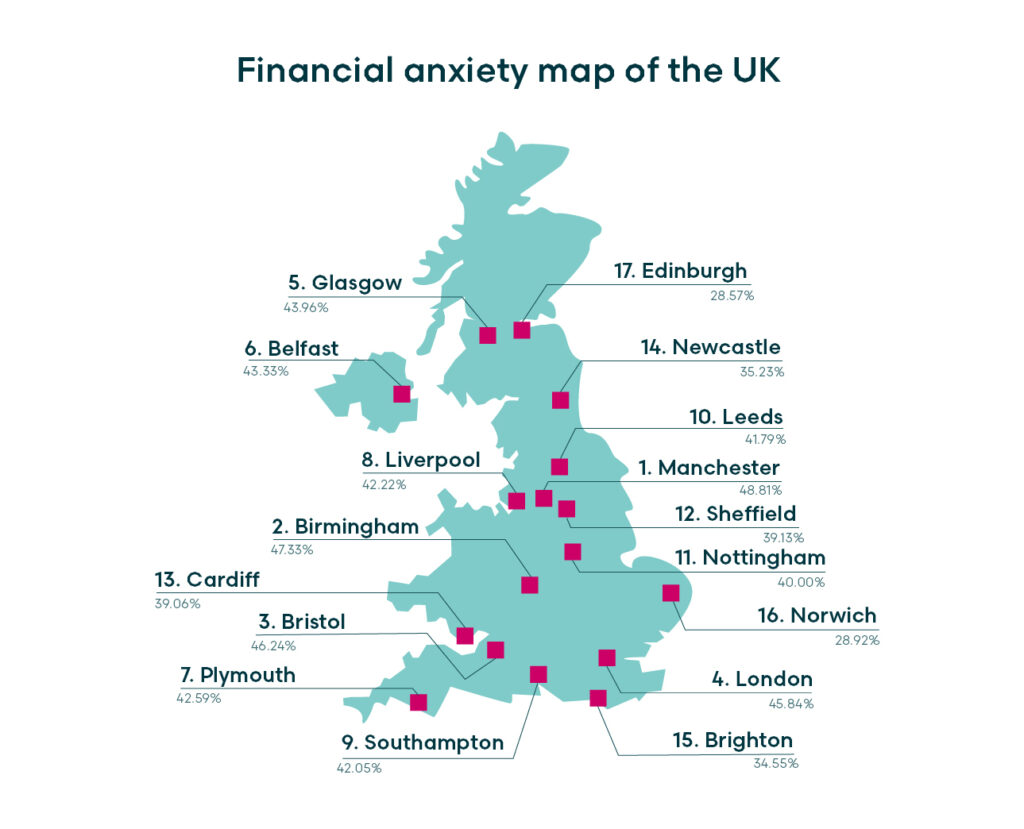A new study reveals 30% of Brits feel anxious about their finances

After a year-long pandemic where many lost jobs and livelihoods, it comes as no surprise that Brits are feeling anxious about managing their finances. But, what exactly are the UK’s biggest anxieties when it comes to personal loans and understanding ‘financial jargon’?
A new report released by Shawbrook Bank reveals Brits’ current concerns and anxieties when it comes to borrowing money.
Do Brits understand confusing financial jargon?
59% of Brits agree that the written language used in personal loan applications, and documents, is confusing and not easy to understand.
More than 1 in 2 Brits confirm that confusing language would put them off of applying for a personal loan.
Just 16% of Brits admit to reading the T&Cs of a finance agreement ‘very thoroughly’ before going ahead with their application.
To understand this financial jargon, 34% stated they would search terminology on Google and 6% said they wouldn’t ask anyone for help.
5 tips for reducing personal finance anxiety
Sally Conway, Head of Consumer Communications, Shawbrook Bank provides 5 helpful tips:
Make a budget and stick to it
Knowing how much money you have coming in versus your expenses is the best place to start. It’s important to include everything, from the odd takeaway coffee to your regular bills like rent or mortgage payments. If you are spending more than you earn, look at where you can cut back. Remember to be realistic. There is no point in making a budget that you know you will not be able to stick to.
Educate yourself
Anxiety stems from a fear of the unknown. As they say, information is power so you should take the time to get clued up when it comes to money matters. For example, if you look at our research, 1 in 3 people were unsure of, or didn’t know what their credit score was. Knowing this could give you a better idea of how likely a loan provider might be to lend to you. The bottom line is, by taking a proactive approach and educating yourself about financial products and money management, the less anxious you’ll be.
Ask for help or speak to your friends and family
Sometimes a problem shared is a problem halved. Talk to your friends and family. You never know, they might have been through a similar situation before and give you a little guidance on what to do next. There are also plenty of independent organisations out there to help you if you are in financial difficulty or just need a little advice.
Start building an emergency fund or a buffer
If the last 18 months have taught us anything, it’s the fact that you never really know what’s around the corner. Planning for the unexpected is not easy. But, you can build an emergency fund if something unexpected does happen. Advisers typically recommend aiming for three months’ earnings, but any buffer is better than none at all. Start small and build it up, there are plenty of savings challenges out there that will ease you into the swing of things.
Shop around and do your research
When it comes to money matters & financial products, shopping around is extremely important. There is a lot of choices out there and you’ll need to do your research to find the best deal for you. Whether it’s looking for the best ISA for your savings or finding a personal loan rate that you can afford, take your time, look at all your options and make sure you fully understand what you are signing up to.




